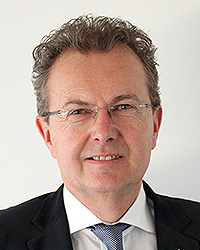
Henk Brus
CEO
Pacifical c.v.
Henk Brus was born into the tuna business as the son of a canned foods’ importer. In 1987, after finishing his study in psychology, he started work in the food trade sector. From 1992 to 1998, he was the vice-president of a leading multinational canned fish importer in the Netherlands.
In 1998, he founded his own company, Atuna bv – a global tuna trading company covering the complete vertical supply chain. That same year he also launched an internet blog, Atuna.com, which has since become the world’s leading internet portal for tuna news, and the organizer of this conference. Atuna.com has now become exclusively a media company. Since 2014, Henk is only involved in Atuna B.V. as a shareholder.
Henk has been a speaker and co-chair at several major tuna conferences over the last 20 years.
In 2000, he was one of the co-founders of the World Tuna Purse Seiner Organization (WTPO).
In early 2007, Henk founded a new company, Sustunable bv, which seeks a “Responsible Business Approach Towards Tuna Sourcing,” and was the pioneer in the marketing of FAD-free tuna; in the meantime supplying over 15 supermarket chains throughout Europe.
In 2010, Sustunable was approached by the WCP’s eight PNA nations to become their J/V partner in the company Pacifical cv, in order to globally market PNA’s MSC sustainable certified free school skipjack and yellowfin tuna under the “Pacifical” co-brand. Henk has also been appointed by shareholders as the Managing Director of Pacifical cv.
Speech Summary
Based on the buying behavior of the consumers we know that often the first criteria in decision-making is price.
Often we hear that consumers have only limited interest in MSC certified tuna, which is then also a reason not to introduce products carrying the blue sustainability logo, or even to eliminate or discontinue such product,
Henk Brus’ presentation intends to analyze the situation in Central and Northern European markets in relation to this situation, in which households are expected to pay a premium for sustainable certified canned tuna, or not. However, for other canned or frozen wild seafood products, where there are only MSC certified options available, they do not have to take such a moral decision.
How do the price premiums on MSC certified canned tuna on the supermarket shelves relate to the costs incurred? How do they compare with products without any sustainability claims?
How is it that, for example, in a market as the Netherlands, where most of the canned and frozen seafood sold is MSC certified, 93% of all canned tuna consumed is not MSC certified?
Why do these consumers make different choices for canned tuna than for other fish?
What is the role that price positioning by brands and retailers play in the value proposition that is being presented?